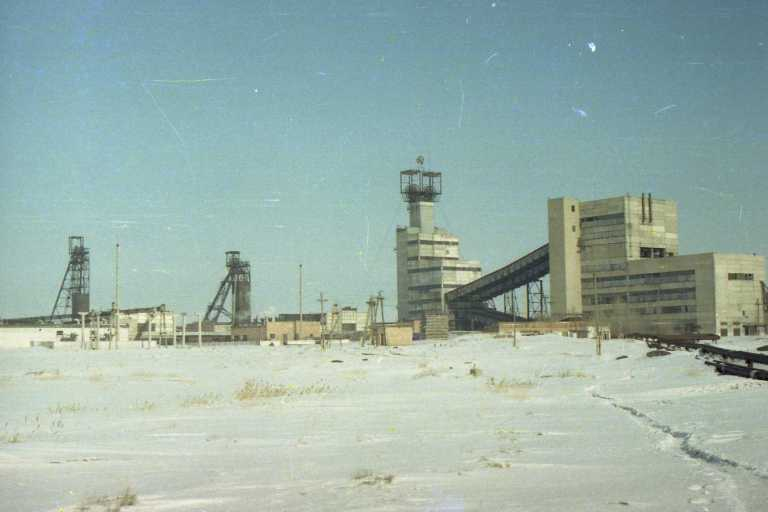A fire at a coal mining site in central Kazakhstan on August 17 killed three workers and injured more than a dozen. Two more workers have yet to be found at the “Kazakhstan” mine, operated by ArcelorMittal Temirtau, a subsidiary of Luxemburg-registered ArcelorMittal. In November last year, five miners died at the “Lenin” mine as a result of an underground explosion. Coal mining is one of the main industries of the Karaganda region.
More than 100 miners went on strike on August 14 near the town of Satpayev to protest against worsening work conditions. The miners work for Kazakhmys, one of the country’s largest mining corporations. Mine No. 65, around 20 kilometers north-west of Zhezkazgan, the administrative center of the Ulytau region, is one of Kazakhstan’s largest producers of copper.
Kazakhstan and Kyrgyzstan are negotiating water supplies from the Kirov dam in Kyrgyzstan to the Zhambyl region in Kazakhstan, the ministry of ecology said on August 11. The water coming from Kyrgyz dams and rivers is vital for irrigation in Kazakhstan’s southern regions and lower supplies could lead to a diminishing agricultural production this year. The Kyrgyz side said on August 14 that Kazakhstan has already exceeded its water consumption quota.
A group of activists held a press conference in Almaty on August 17 against the construction of a nuclear power plant, a project that the ministry of energy is still examining. The ministry, which said on the same day that “the number of people supporting the construction of a nuclear power plant has increased significantly, and continues to grow,” has planned to coordinate public hearings on August 22 in the village of Ulken, on the shores of Lake Balkhash, one of the country’s largest bodies of water, about 350 kilometers north-west of Almaty.
Blockbuster movies should be dubbed into Kazakh and made available to a wider audience, Askhat Oralov, minister of culture, instructed on August 17, after a renewed polemic about the lack of Kazakh-language screenings of the Hollywood movies “Barbie” and “Oppenheimer”.
Kazakhstan and San Marino are considering signing an agreement establishing a visa-free regime, a government portal said on August 8, which would allow Kazakhstanis to visit the landlocked enclave in the Italian peninsula for 90 out of 180 consecutive days. Kazakhstan’s ministry of foreign affairs said on August 16 that the same kind of agreement could soon be signed with the Seychelles but for 30 out of 180 consecutive days.
A court in Almaty extended on August 16 a pre-trial detention measure against Duman Mukhammedkarim, a journalist accused of “financing extremist groups”. He has faced pressure and detentions for almost a year.
Two activists of the Karakalpak diaspora saw their application for political asylum in Kazakhstan rejected, media reported on August 14. The activists were accused of organizing last year’s protests in Nukus, in north-western Uzbekistan, and detained in Kazakhstan. One of the activists said the decision not to grant asylum was unsurprising, because “since 2001, not a single person in Kazakhstan has been granted asylum in such cases”. Tamara Duisenova, the minister of labor, said in a note on August 8 that the country currently hosts 628 asylum seekers and 333 refugees.
A court of appeal in the southern city of Taraz posthumously acquitted on August 8 only one out of five people that had earlier been found guilty of participating in the violence of Qandy Qantar (Kazakh for “Bloody January”, the urban protests that were violently suppressed last year). The five men under trial were all killed during Qandy Qantar and were sentenced posthumously in February. The parents of the four accused said they would now apply for acquittal at the Supreme Court.
Russia will start on October 1 to send gas to Uzbekistan via Kazakhstan, the ministry of energy said on August 15. Russia will use the Central Asia-Center pipeline - which was once used in the opposite direction to send Central Asian gas to Russia - to pump up to 10 billion cubic meters (bcm) of gas to Uzbekistan. In 2022, Uzbekistan consumed 48.3 bcm and its domestic demand is growing. Qazaqgaz, the company that owns the gas pipelines in Kazakhstan will earn transit fees from the deal.
Erik Sagiyev, deputy director at oil pipeline monopolist KazTransOil, said on August 18 that, should the situation worsen at the Black Sea port of Novorossiysk, Kazakhstan’s oil exports could be redirected to the Ust-Luga port in the Gulf of Finland. Around 98% of Kazakhstan’s oil exports are transported through Russian territory. The Caspian Pipeline Consortium pumps around 80% of the total from the oil fields in western Kazakhstan to Novorossiysk. The pipeline has suffered a number of interruptions in the past two years.
A court of appeal in Almaty revisited on August 11 the punishment against businessman Orifjan Shadiev, who had been sentenced to 1.5 years in prison for abuse of power in July. The court instead decided to give Shadiev two years of limited freedom, plus a lifelong ban from holding executive positions in banking and finance. Shadiev, who owned now-liquidated AsiaCredit Bank and Capital Bank, will thus not serve his sentence in prison.
Note: This edition covers the two weeks between August 5 and August 18.
Поддержите журналистику, которой доверяют.








